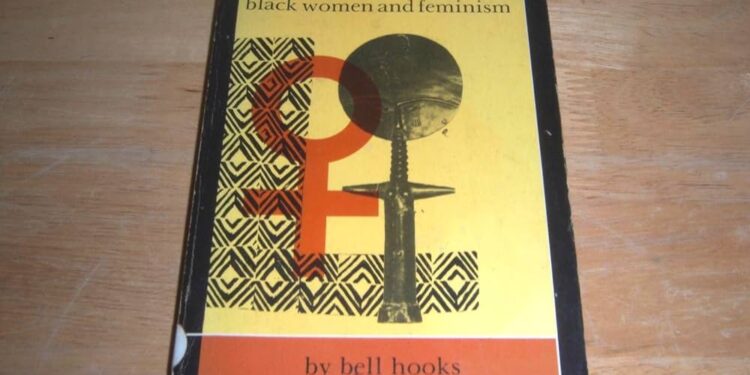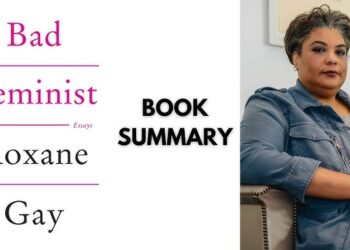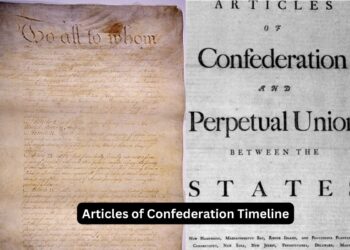Table of Contents
ToggleIntroduction
Ain’t I A Woman Black Women Summary By bell hook In her landmark book Ain’t I a Woman: Black Women and Feminism (1981), bell hooks offers a searing critique of both the feminist movement and the civil rights movement from the perspective of Black women. A scholar, activist, and cultural critic, hooks addresses the unique struggles of Black women at the intersection of race, gender, and class, shedding light on the ways in which both mainstream feminism and the Black liberation movement have marginalized Black women’s voices and experiences. hooks’ analysis, grounded in the historical context of slavery, racism, sexism, and classism, presents an intersectional framework for understanding the complexities of identity and oppression.Ain’t I A Woman Black Women Summary By bell hook
The title of the book itself is a reference to Sojourner Truth’s famous speech, “Ain’t I a Woman?” delivered in 1851, which challenged the racist and sexist norms of her time. By invoking Truth’s words, hooks draws attention to the way Black women’s struggles have been historically overlooked or dismissed by both feminist and anti-racist movements. hooks argues that the traditional feminist discourse, which has often been dominated by middle-class white women, has failed to account for the unique position of Black women, whose experiences are shaped by the interlocking systems of racism, sexism, and economic oppression.
In Ain’t I a Woman, bell hooks not only critiques the historical exclusion of Black women from feminist theory but also offers a compelling argument for a more inclusive, intersectional feminism that takes into account the lived realities of women of color. Her work challenges the prevailing narratives of both feminism and anti-racism, calling for a deeper understanding of how systems of oppression affect Black women differently than their white counterparts. hooks’ approach to feminism is not just theoretical but deeply rooted in activism, pushing for structural change and a reevaluation of social systems that perpetuate inequality.Ain’t I A Woman Black Women Summary By bell hook
This essay will provide a comprehensive summary and analysis of Ain’t I a Woman, examining the key themes of the text, exploring its central arguments, and reflecting on the impact of hooks’ work on feminist thought and activism. It will also address some frequently asked questions to provide additional clarity and context for readers engaging with this important work.

Summary of Ain’t I a Woman: Black Women and Feminism
The Historical Legacy of Slavery and Its Impact on Black Women
bell hooks begins Ain’t I a Woman by addressing the deep historical roots of the oppression of Black women, tracing it back to the period of slavery. She argues that the exploitation of Black women during slavery created a legacy of violence, dehumanization, and economic oppression that continues to shape the lives of Black women today.Ain’t I A Woman Black Women Summary By bell hook
Unlike white women, who were often seen as delicate and in need of protection, Black women were viewed as laborers who could endure hardship and perform physical labor without the need for the “protection” afforded to white women. This dehumanizing view of Black women, hooks argues, laid the foundation for the stereotypes and racialized gender roles that continue to harm Black women.
Read more
Hooks contends that slavery was not just a system of economic exploitation, but also a system that shaped the ways in which Black women’s bodies and identities were constructed. The sexual exploitation of Black women by white men, the separation of families, and the brutalization of Black women all left deep psychological and emotional scars. Slavery not only deprived Black women of autonomy over their bodies and lives but also placed them in a constant state of subjugation to both white men and Black men, creating a unique form of oppression that has persisted into modern times.Ain’t I A Woman Black Women Summary By bell hook
This history of oppression under slavery, according to hooks, laid the groundwork for the systematic marginalization of Black women within both the feminist and civil rights movements. She argues that mainstream feminism has largely failed to address this history and, as a result, has overlooked the specific needs and concerns of Black women.Ain’t I A Woman Black Women Summary By bell hook
The Failure of Mainstream Feminism to Address the Needs of Black Women
One of the key criticisms hooks offers in Ain’t I a Woman is that mainstream feminism, particularly during the second wave of the feminist movement, has been predominantly white, middle-class, and focused on issues that were not necessarily reflective of the realities faced by Black women. White feminists, hooks argues, often framed feminism around the struggles of white, affluent women, focusing on issues like suffrage, reproductive rights, and gender equality in the workplace. While these issues were undeniably important, they did not address the unique struggles that Black women faced, including the intersecting issues of race, class, and gender.
Hooks also critiques the way white feminists have, at times, romanticized Black women’s experiences or portrayed them as passive victims in need of saving. This “white savior” mentality, according to hooks, disregards the agency and resistance of Black women. She argues that Black women’s struggles cannot be reduced to simply an extension of the struggles of white women. Instead, Black women’s experiences are shaped by the confluence of racism, sexism, and economic exploitation, and any true feminist movement must account for these overlapping systems of oppression.
For hooks, feminism must be inclusive, acknowledging the struggles faced by women of all races, classes, and backgrounds. She calls for a feminism that moves beyond the narrow concerns of white middle-class women and embraces a more radical, inclusive vision that addresses the unique needs of women of color, particularly Black women. This, she argues, requires not only a critique of patriarchy but also a critique of racism and economic inequality.Ain’t I A Woman Black Women Summary By bell hook
The Misrepresentation of Black Women in Both Feminist and Civil Rights Movements
Another central argument in Ain’t I a Woman is the way in which Black women have been misrepresented or sidelined in both feminist and civil rights movements. Hooks suggests that while Black men, such as leaders of the civil rights movement, were fighting for racial justice, they often overlooked or downplayed the role of Black women in these struggles. Similarly, mainstream feminists often ignored the intersectional nature of Black women’s oppression, focusing on gender without addressing the unique ways in which race and class shaped Black women’s experiences.
Hooks highlights the tension between the feminist movement’s focus on women’s rights and the civil rights movement’s focus on racial justice. Black women found themselves caught in the middle of these two movements, often feeling alienated from both. Black feminists, hooks argues, were forced to create their own space in these movements, developing a feminist consciousness that addressed both race and gender oppression.
Through this analysis, hooks calls for an intersectional approach to feminism, one that does not treat gender, race, and class as separate issues but recognizes the ways in which they intersect and compound one another in the lives of women of color. Black women’s unique experiences, hooks asserts, cannot be fully understood or addressed by either the mainstream feminist movement or the Black liberation movement without a more nuanced, intersectional framework.
Sexism and Misogyny within the Black Community
In addition to critiquing the exclusion of Black women in both feminist and civil rights movements, hooks also addresses the internalized sexism and misogyny that exists within the Black community. She argues that Black women’s oppression is not only a result of white supremacy but also a result of the patriarchal structures within Black communities. Despite the fact that Black men share a history of oppression under white supremacy, hooks notes that they too have been complicit in perpetuating the marginalization of Black women.Ain’t I A Woman Black Women Summary By bell hook
The dynamics of race and gender oppression, according to hooks, are complex and often contradictory. While Black men and women face similar forms of racial discrimination, the roles and expectations of gender within the Black community still reflect patriarchal norms. Black women have historically been tasked with holding families together, often at the expense of their own well-being, while Black men have been given more social authority and power within the community.
Ain’t I A Woman Black Women Summary By bell hook Hooks critiques this gendered power dynamic, calling for a greater recognition of the importance of Black women’s voices and experiences in the struggle for Black liberation.Ain’t I A Woman Black Women Summary By bell hook
The Need for a Radical Feminism
Finally, hooks argues that feminism must be radically reimagined in order to truly address the needs of Black women. She stresses that a feminist movement that centers on the experiences of Black women must go beyond the traditional frameworks of feminism, which often prioritize the concerns of white, middle-class women. Instead, hooks calls for a feminism that is deeply attuned to the intersectionality of race, gender, and class, and that recognizes the ways in which these systems of oppression are interwoven in the lives of Black women.
In this vision of radical feminism, hooks emphasizes the importance of solidarity among all women, especially women of color, in challenging the systems of oppression that affect their lives. She also highlights the need for Black women to reclaim their agency and resist the pressures to conform to either white or Black patriarchal norms. This radical feminism is one that not only challenges gender inequality but also seeks to dismantle the entire system of racial and economic oppression that perpetuates injustice.
Read more
Themes in Ain’t I a Woman
1. Intersectionality
The central theme of Ain’t I a Woman is the concept of intersectionality—the understanding that race, gender, and class are interconnected systems of oppression that affect individuals in complex and overlapping ways. hooks argues that Black women’s experiences cannot be fully understood by focusing solely on race or gender; instead, we must examine the ways in which these identities intersect to create unique forms of discrimination and marginalization.
2. The Legacy of Slavery
Another key theme in the book is the lasting impact of slavery on Black women’s lives. hooks contends that the trauma of slavery has shaped the experiences of Black women in profound ways, influencing their sense of identity, their relationships with others, and their place within both the Black community and society at large.
3. The Failure of Mainstream Feminism
Hooks critiques mainstream feminism for its exclusion of Black women and its failure to address the specific challenges they face. She argues that white feminists often overlook the complexities of race and class, and that feminist discourse must be more inclusive of women of color if it is to be truly liberating.
4. Misogyny and Sexism in the Black Community
In addition to critiquing external systems of oppression, hooks also addresses the internalized sexism and misogyny within the Black community. She calls for a reevaluation of gender roles and norms within Black culture and emphasizes the need for Black men to recognize and challenge their own complicity in perpetuating the marginalization of Black women.
5. Radical Feminism
Finally, hooks advocates for a radical feminist movement that takes into account the intersecting struggles of race, gender, and class. She calls for a more inclusive and transformative feminism, one that challenges not just patriarchy but the entire system of oppression that marginalizes Black women.

Conclusion
Ain’t I a Woman: Black Women and Feminism* by bell hooks is a groundbreaking work of feminist theory that challenges traditional understandings of gender, race, and oppression. By offering a critique of both mainstream feminism and the civil rights movement, hooks calls for a more inclusive and intersectional approach to feminism—one that recognizes the unique struggles of Black women and advocates for structural change.
Through her powerful analysis, hooks not only highlights the historical roots of Black women’s oppression but also offers a vision for a radical, transformative feminism that is both inclusive and liberatory. Ain’t I a Woman remains a critical text in feminist thought, offering valuable insights into the complex dynamics of race, gender, and class Ain’t I A Woman Black Women Summary By bell hook
(FAQ)
1. What is the significance of the title Ain’t I a Woman?
The title is a reference to Sojourner Truth’s famous speech, “Ain’t I a Woman?”, in which she challenged the racial and gender inequalities of her time. By invoking Truth’s words, hooks highlights the historical and ongoing struggles of Black women, asserting that their experiences of oppression are often overlooked by both the feminist and civil rights movements.
2. How does bell hooks define intersectionality in Ain’t I a Woman?
In Ain’t I a Woman, bell hooks defines intersectionality as the interconnectedness of race, gender, and class oppression. She argues that Black women’s experiences cannot be fully understood by isolating these identities; instead, we must recognize the ways in which these systems of oppression overlap and intersect to create unique forms of discrimination.
3. How does hooks critique mainstream feminism in the book?
Hooks critiques mainstream feminism for being predominantly white and middle-class, arguing that it has often excluded the experiences and needs of Black women. She calls for a more inclusive feminism that accounts for the unique struggles of women of color, particularly Black women, and emphasizes the importance of intersectionality in feminist discourse.
4. What is hooks’ vision of radical feminism?
Hooks’ vision of radical feminism is one that goes beyond the traditional frameworks of feminism to address the intersecting systems of race, gender, and class oppression. She advocates for a feminism that is inclusive, transformative, and centered on the lived experiences of women of color, particularly Black women.
Read more
















